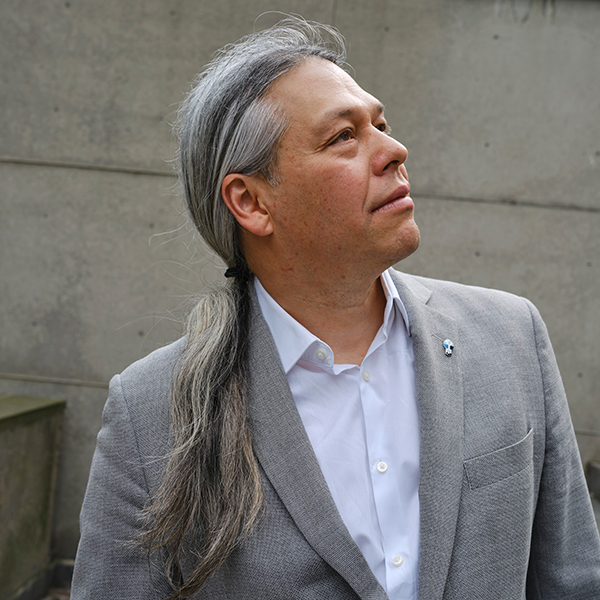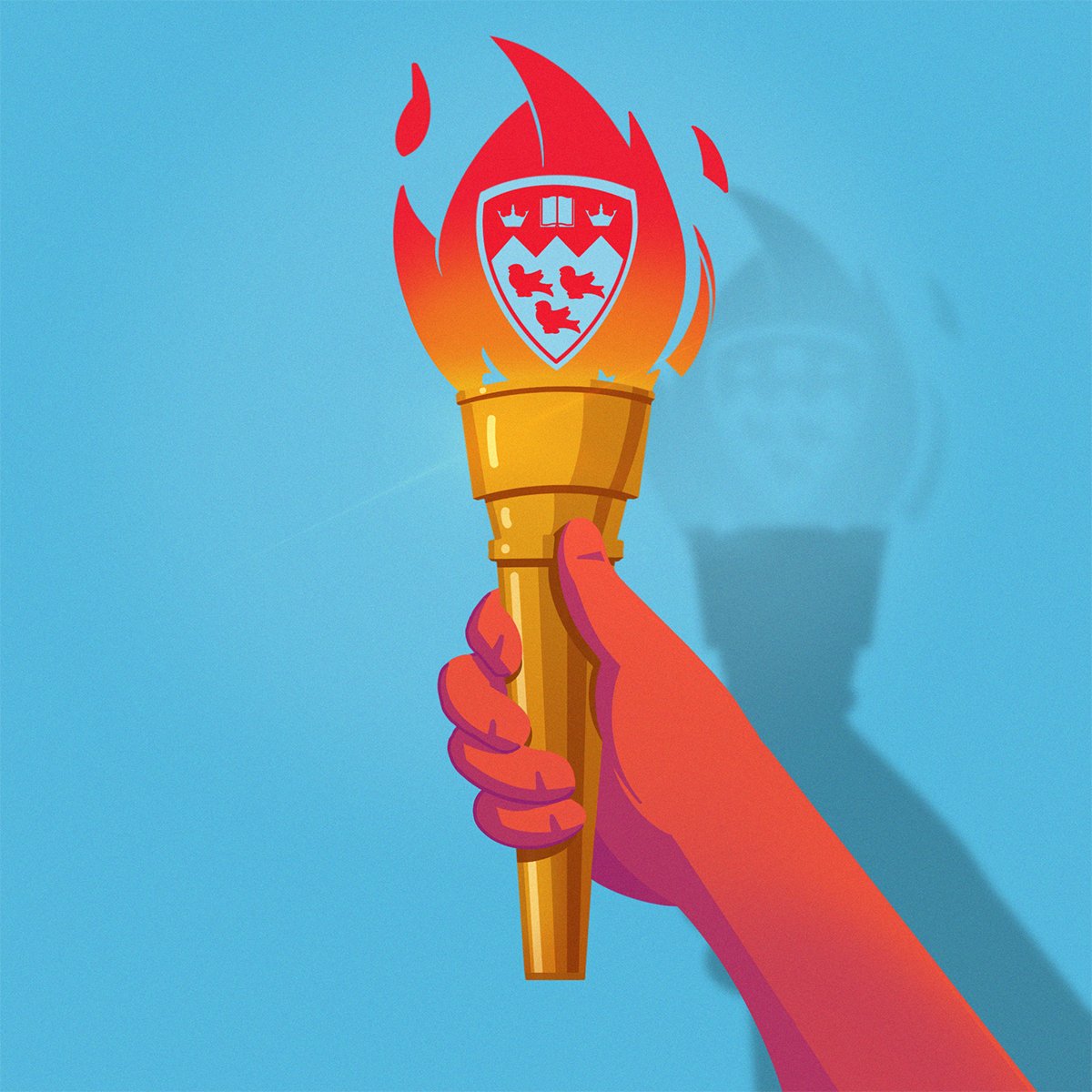When Barack Obama was first elected president of the United States in 2008, Emma Gray, BA’10, was among the crowd of McGill students anxiously watching the election results at Gerts. The campus bar erupted with joyful cheers when Obama was declared the winner.
Gray, now the executive women’s editor at HuffPost, recalls the vibe being very different eight years later at another election night event she attended. It was supposed to be a victory party for Hillary Clinton at the Javits Center in Manhattan. Her supporters awaited the news, with champagne at the ready, that Clinton would become the first female president-elect in U.S. history. Instead, the election results were devastating for the crowd assembled there that night.
“The 2016 presidential election felt, in some ways, like a referendum on the value of women (and women of colour and immigrants and refugees and Muslims … the list goes on), one that we lost,” writes Gray in her new book, A Girl’s Guide to Joining the Resistance: A Feminist Handbook on Fighting for Good.
In the days that followed, Gray says she “saw an outpouring of grief and fear, and then I saw it channeled.” Trump may have won the election, but he would find himself facing determined opposition as he pursued the most controversial parts of his agenda (travel bans targeting Muslim countries, attacks on the Affordable Care Act, the rights of transgender people, and environmental protection measures, etc).
A day after Trump’s inauguration, approximately five million women took part in Women’s March protest events. In her book, Gray notes that women have long played pivotal roles in some of the most influential protest movements in U.S. history. She decided to do something to support and equip young women wary about a Trump presidency.
A Girl’s Guide was written for women in their teens and 20s. When it comes to political issues, Gray feels that this is a demographic that often gets overlooked.
“Don’t underestimate young people,” she says. Commenting on the remarkable efforts of high school students to push for gun control measures in the wake of the shooting deaths at Marjory Stoneman Douglas High School in Florida, Gray recently wrote that young people have “often been the ones brave enough to imagine a better future for themselves and their peers.”
Written in a warm, conversational tone, A Girl’s Guide offers plenty of tips for budding activists – reliable sites for fact-checking (Snopes and PolitiFact), apps that help to direct your concerns to elected officials (Countable and 5 Calls), and TV shows and films to watch when in need of an inspirational pick-me-up (Parks and Recreation is one suggestion).
The book explores the histories of different movements, argues the case for an intersectional approach to activism, and explains why public protests are frequently effective. Gray also includes other voices – more than two dozen activists and political leaders – offering their own advice.
“A lot of what I do is interviewing people, and amplifying what they have to say,” says Gray. Among those quoted in the book are Black Lives Matter Network cofounder Alicia Garza, U.S. senator Elizabeth Warren, actress/activist Ashley Judd, and Tina Tchen, the former chief of staff to Michelle Obama. Other, less familiar figures also have their say – like Deja Foxx, a high school student who has become a prominent proponent for Planned Parenthood.
When Gray was working on her degree in sociology at McGill (with minors in political science and sexual diversity studies), she briefly considered pursuing an academic career, but decided against it. “I began to feel an itch that it was too inward,” she says. By graduation, having written a bit for the McGill Daily, she was eager to try writing for a broader audience. Gray, who grew up close to Washington, D.C., decided to move to New York to “try this media thing.”
At first, that involved writing for blogs for no money. She landed a job at HuffPost, writing about health. Soon after the site created a new women section, Gray joined that team. She played a major role in building the section, which now boasts nearly two million Facebook followers, and started making appearances as a commentator on shows like The Today Show.
Now the executive editor of the women section, Gray also hosts Here to Make Friends, a HuffPost podcast about the reality TV dating franchise The Bachelor. Gray sees the show as a tool for understanding our world. “It reflects back at us our most base ideas of love and sex and dating,” she says.
She has a quick answer for anyone who cocks an eyebrow at her interest in the show. No one questions why a perfectly smart man would want to watch football, she says, so neither should we question women who want to watch a TV show that’s admittedly kind of silly. “We need to enjoy fluffy [crap] sometimes,” says Gray.


